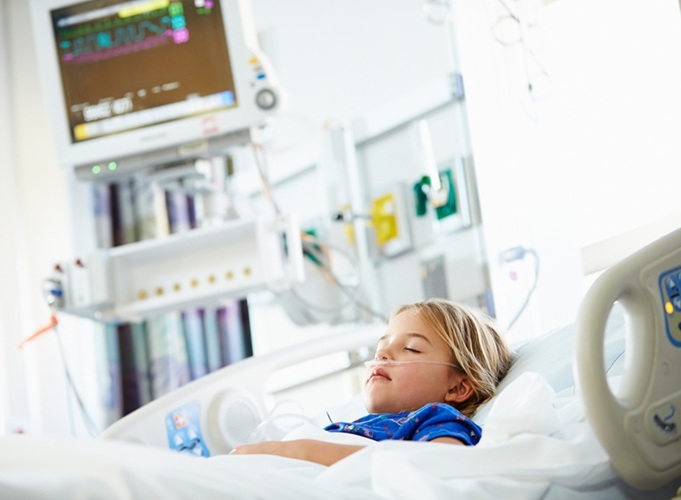Risk of Death Not Affected by Weekend Surgery
|
By HospiMedica International staff writers Posted on 06 Apr 2017 |
A new study challenges the paradigm that patients who undergo elective surgery at the end of the week are at a greater risk of dying.
Researchers at the University of Edinburgh, the Royal Infirmary of Edinburgh, and other institutions conducted an observational study of all patients undergoing emergency general surgery in Scotland from January 2005 to December 2007, and who were followed to 2012, in order to assess the effect of day of the week on surgery results. The primary outcome was perioperative mortality, with the secondary outcome being overall survival.
A total of 50,844 patients were identified, 31,499 of who underwent an emergency procedure on Monday to Thursday and 19,345 on Friday to Sunday. Patients undergoing surgery at the weekend were younger and were more likely to have been operated on sooner than those who had weekday surgery. No difference in perioperative mortality or overall survival was observed in surgeries performed over the weekend, despite the fact that patients underwent riskier and/or more complex procedures. The study was published on March 21, 2017, in the British Journal of Surgery.
“Emergency surgery is associated with far greater risks than elective surgery, so it is reassuring to find that patients in Scotland are receiving the same high standards of care throughout the week,” said lead author Michael Gillies, MD, of the University of Edinburgh department of anaesthesia, critical care, and pain medicine. “There was no difference in overall survival after surgery undertaken on any particular day compared with Wednesday; a borderline reduction in perioperative mortality was seen on Tuesday.”
The so-called “weekend effect” on patient outcomes has been well documented in cases of heart attack, stroke, aneurism, and head trauma in many countries. Reasons for the effect are diverse, and include fewer experienced doctors and nurses working on weekends, reduced diagnostic and interventional services, and patients with less severe conditions delaying treatment.
Researchers at the University of Edinburgh, the Royal Infirmary of Edinburgh, and other institutions conducted an observational study of all patients undergoing emergency general surgery in Scotland from January 2005 to December 2007, and who were followed to 2012, in order to assess the effect of day of the week on surgery results. The primary outcome was perioperative mortality, with the secondary outcome being overall survival.
A total of 50,844 patients were identified, 31,499 of who underwent an emergency procedure on Monday to Thursday and 19,345 on Friday to Sunday. Patients undergoing surgery at the weekend were younger and were more likely to have been operated on sooner than those who had weekday surgery. No difference in perioperative mortality or overall survival was observed in surgeries performed over the weekend, despite the fact that patients underwent riskier and/or more complex procedures. The study was published on March 21, 2017, in the British Journal of Surgery.
“Emergency surgery is associated with far greater risks than elective surgery, so it is reassuring to find that patients in Scotland are receiving the same high standards of care throughout the week,” said lead author Michael Gillies, MD, of the University of Edinburgh department of anaesthesia, critical care, and pain medicine. “There was no difference in overall survival after surgery undertaken on any particular day compared with Wednesday; a borderline reduction in perioperative mortality was seen on Tuesday.”
The so-called “weekend effect” on patient outcomes has been well documented in cases of heart attack, stroke, aneurism, and head trauma in many countries. Reasons for the effect are diverse, and include fewer experienced doctors and nurses working on weekends, reduced diagnostic and interventional services, and patients with less severe conditions delaying treatment.
Latest Surgical Techniques News
- Novel Glue Prevents Complications After Breast Cancer Surgery
- Breakthrough Brain Implant Enables Safer and More Precise Drug Delivery
- Bioadhesive Sponge Stops Uncontrolled Internal Bleeding During Surgery
- Revolutionary Nano Bone Material to Accelerate Surgery and Healing
- Superior Orthopedic Implants Combat Infections and Quicken Healing After Surgery
- Laser-Based Technique Eliminates Pancreatic Tumors While Protecting Healthy Tissue
- Surgical Treatment of Severe Carotid Artery Stenosis Benefits Blood-Brain Barrier
- Revolutionary Reusable Duodenoscope Introduces 68-Minute Sterilization
- World's First Transcatheter Smart Implant Monitors and Treats Congestion in Heart Failure
- Hybrid Endoscope Marks Breakthrough in Surgical Visualization
- Robot-Assisted Bronchoscope Diagnoses Tiniest and Hardest to Reach Lung Tumors
- Diamond-Titanium Device Paves Way for Smart Implants that Warn of Disease Progression
- 3D Printable Bio-Active Glass Could Serve as Bone Replacement Material
- Spider-Inspired Magnetic Soft Robots to Perform Minimally Invasive GI Tract Procedures
- Micro Imaging Device Paired with Endoscope Spots Cancers at Earlier Stage
- AI Spine Model Could Reduce Surgical Risks
Channels
Critical Care
view channel
Origami Robots to Deliver Medicine Less Invasively and More Effectively
Delivering medicine to ulcers or other internal sites often requires invasive procedures that can disrupt surrounding tissues and lengthen recovery times. Traditional magnetic actuators used in soft robotics... Read more
Improved Cough-Detection Technology Aids Health Monitoring
Coughing serves as an important biomarker for tracking a variety of conditions and can help monitor the progress of respiratory diseases or predict when someone’s asthma is being exacerbated.... Read morePatient Care
view channel
Revolutionary Automatic IV-Line Flushing Device to Enhance Infusion Care
More than 80% of in-hospital patients receive intravenous (IV) therapy. Every dose of IV medicine delivered in a small volume (<250 mL) infusion bag should be followed by subsequent flushing to ensure... Read more
VR Training Tool Combats Contamination of Portable Medical Equipment
Healthcare-associated infections (HAIs) impact one in every 31 patients, cause nearly 100,000 deaths each year, and cost USD 28.4 billion in direct medical expenses. Notably, up to 75% of these infections... Read more
Portable Biosensor Platform to Reduce Hospital-Acquired Infections
Approximately 4 million patients in the European Union acquire healthcare-associated infections (HAIs) or nosocomial infections each year, with around 37,000 deaths directly resulting from these infections,... Read moreFirst-Of-Its-Kind Portable Germicidal Light Technology Disinfects High-Touch Clinical Surfaces in Seconds
Reducing healthcare-acquired infections (HAIs) remains a pressing issue within global healthcare systems. In the United States alone, 1.7 million patients contract HAIs annually, leading to approximately... Read moreHealth IT
view channel
Printable Molecule-Selective Nanoparticles Enable Mass Production of Wearable Biosensors
The future of medicine is likely to focus on the personalization of healthcare—understanding exactly what an individual requires and delivering the appropriate combination of nutrients, metabolites, and... Read moreBusiness
view channel
Philips and Masimo Partner to Advance Patient Monitoring Measurement Technologies
Royal Philips (Amsterdam, Netherlands) and Masimo (Irvine, California, USA) have renewed their multi-year strategic collaboration, combining Philips’ expertise in patient monitoring with Masimo’s noninvasive... Read more
B. Braun Acquires Digital Microsurgery Company True Digital Surgery
The high-end microsurgery market in neurosurgery, spine, and ENT is undergoing a significant transformation. Traditional analog microscopes are giving way to digital exoscopes, which provide improved visualization,... Read more
CMEF 2025 to Promote Holistic and High-Quality Development of Medical and Health Industry
The 92nd China International Medical Equipment Fair (CMEF 2025) Autumn Exhibition is scheduled to be held from September 26 to 29 at the China Import and Export Fair Complex (Canton Fair Complex) in Guangzhou.... Read more














